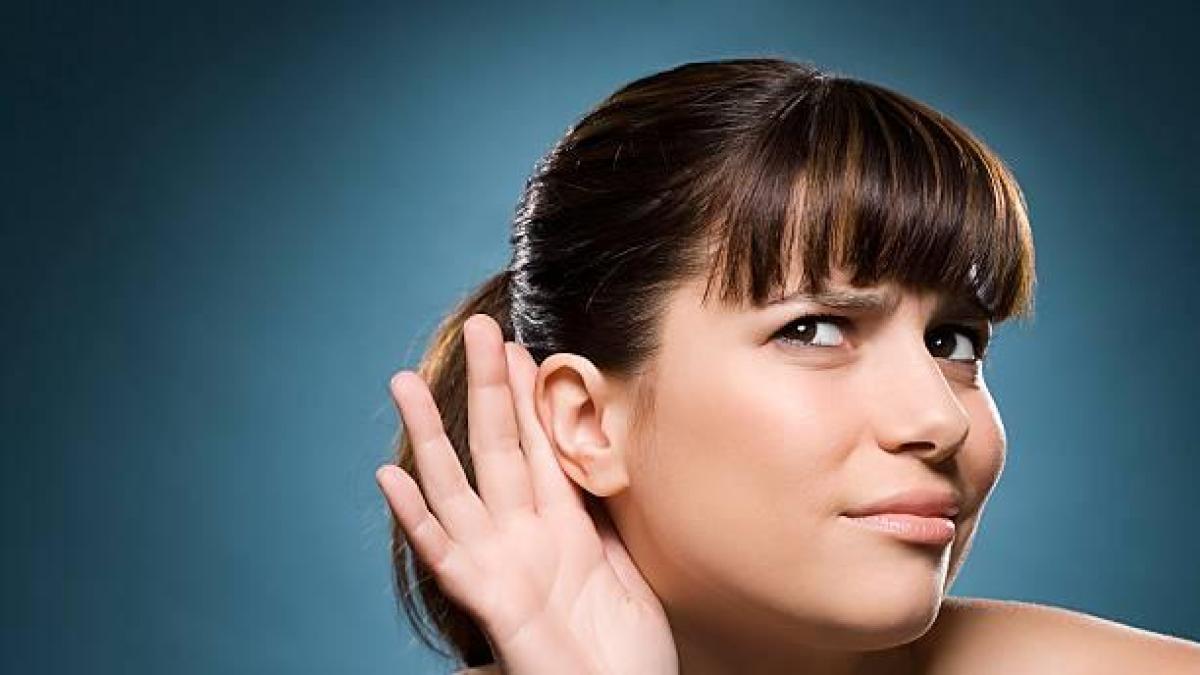by Maria Giovanna Faiella
Seven million Italians suffer from hearing loss. It is not just a problem due to age but can depend on pathologies which, if diagnosed in time, can be treated. Don’t be ashamed to talk about it with your doctor or specialist
“Can’t you hear us?” or even “Are you deaf?”: phrases that sometimes hurt, almost as much as not being able to hear well, or not at all. The stigma associated with hearing loss and ear diseases is still rooted in societies and can compromise treatments, as highlighted by the World Health Organization (WHO) on the occasion of the world hearing day, which occurs on March 3. Hence the slogan chosen this year, «Change mentality: let’s make ear and hearing care a reality for everyone!» with the aim of raising awareness of the possible consequences of hearing disorders, especially if not recognised, diagnosed and treated adequately.
Hearing problems for 7 million compatriots
According to WHO estimates, by 2050, over 700 million people (one in ten) worldwide will have disabling hearing loss and approximately one in four individuals will experience some form of hearing loss.
In our country, 7 million compatriots suffer from hearing loss, around 12 percent of the population, especially those who are older: one in two over 80s and around 25 percent of people in the age group between 61 and 80 years have a disabling hearing loss, with repercussions on cognitive abilities and social inclusion.
Young people are also at risk (due to unsafe listening habits)
Hearing disorders are also increasing among adults and younger people, who are more exposed to environmental risks. Globally, WHO estimates that, by 2050, more than one billion young people could be at risk of permanent (avoidable) hearing loss due to their unsafe listening habits.
«On the subject of prevention, little is being done, to say nothing – comments Pietro Cino, president of the Commission for the National Register of Audiometric Technicians -. There is now a large number of scientific studies linking the increasingly frequent and reckless use of devices for listening to music by new generations and the presence of hearing loss induced by exposure to high intensity sounds. Recently, a study published on rivista scientifica BMJ Public Health Journalhighlighted the close correlation between noise-induced hearing loss and video gamers, underlining the need to promote educational campaigns on hearing health among young people.”
Hearing loss, when the symptoms are a sign of other diseases
If you have hearing problems, you should talk to your doctor and have periodic audiological checks: intervening promptly can, in fact, prevent the hearing loss from worsening to the point of causing deafness.
Hearing loss can also be a symptom of various pathological conditions which can be resolved if diagnosed in time, but which become permanent if neglected, experts underlined during a meeting in Rome, «Deafness: a silent pandemic» , organized on March 1st on the initiative of the Italian Society of Otolaryngology and Head and Neck Surgery (SIOeChCF) and the Italian Society of Audiology and Phoniatrics (SIAF). This is why, they suggest, at the first sign it is necessary to visit an ENT doctor or an audiologist, the professional figures who can identify the type of problem, and therefore the correct treatment. Professor Giovanni Danesi, past president of SIOeChCf, explains: «The areas of pathology of which deafness can be a symptom can be varied and therefore the specialist doctor-patient relationship becomes a crucial point in early diagnosis: ranging from genetic and hereditary diseases such as ‘otosclerosis, to chronic ear infections, both in childhood and in adults, which must be promptly treated to prevent neural decay of hearing; from viral and non-viral infectious pathologies, such as meningitis which can lead to deafness and must be treated promptly before the cochlea becomes ossified, up to benign tumor pathologies such as tumors of the acoustic nerve”.
Why hearing aids should be used
«Deafness – points out Professor Piero Nicolai, president of the Italian Society of Otolaryngology and Cervical-Facial Surgery – affects women and men, children and the elderly, and too often its impact on daily life is underestimated. For example, not treating deafness in old age increases the risk of dementia more than fivefold in these patients.”
Thirty percent of people over 70 have hearing loss.
Professor Nicola Quaranta, president of the Italian Society of Audiology and Phoniatrics, reports: «Recent studies have highlighted that hearing loss in adulthood represents a significant modifiable risk factor for the development of cognitive impairment in the elderly. An important implication is that early diagnosis and treatment of hearing loss, using hearing aids and cochlear implants, can slow down and prevent cognitive decline in the elderly.”
Hearing screening at birth
A hearing deficit, if not identified and corrected, can also cause important consequences on language development and psychophysical well-being from the early stages of life. In our country, with the Prime Ministerial Decree updating the Lea-Essential levels of assistance in 2017, neonatal hearing screening is guaranteed to all newborns, precisely to reduce the disabling effects of congenital diseases.
«Thanks to neonatal audiological screening – underlines Professor Stefano Berrettini of the University of Pisa, past president of SIAF – today children with hearing impairments can have a linguistic and global development that is very close to that of their normal-hearing peers».
March 2, 2024
© ALL RIGHTS RESERVED
